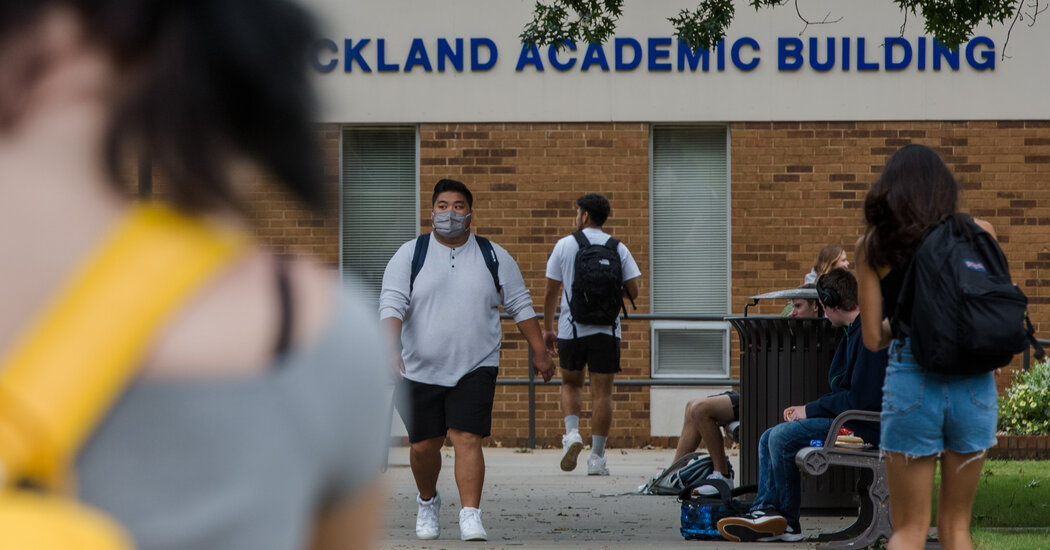
The Education Department outsources the work of billing borrowers and guiding them through the repayment process to hired vendors. FedLoan, which holds a contract to manage the accounts of borrowers pursuing public service loan forgiveness, told the agency this summer that it would not renew its contract when it lapses at the end of the year. It said that the “increasingly complex and challenging” work of servicing federal loans had become too costly.
Another major servicer, Navient, said last month that it, too, is resigning to focus on its other lines of business. Those defections and those of several smaller servicers mean that the Education Department will need to move at least 16 million accounts to new servicers in the coming months — a process that has in the past been filled with confusion and mistakes. Agency officials said they did not yet have a successor to FedLoan lined up.
Kristi Jacobson, a second-grade teacher at George R. Moscone Elementary School, in San Francisco, was cautiously optimistic about the prospects of relief.
Ms. Jacobson learned in June that none of the payments she had been making on her loans since 2005 qualified for forgiveness. She had also been submitting the annual paperwork for the program since 2014. She found out when she filled out a form on the Education Department’s website that advised her to consolidate her loans into one that qualified for public service loan forgiveness. The news stunned her.
“I got goose bumps,” she said. “I read it over and over.”
The 54-year-old had been looking forward to retiring in nine years. Instead, she would be restarting the clock on 10 more years of payments on her $86,000 loan, at $550 per month, after she consolidated her Federal Family Education Loans into a qualifying loan this summer.
“I don’t think I should get a free ride,” Ms. Jacobson said. “I borrowed this money for my education, and I should pay it back. But to be 54, and to think: Oh, I’ll never buy a house. It’s like being in a Kafkaesque tunnel.”
“I’ve been told that good things are on the way,” she added, “but I can’t believe it until it happens.”







-Reviewer-Photo-SOURCE-Louryn-Strampe.jpg?w=330&resize=330,220&ssl=1)